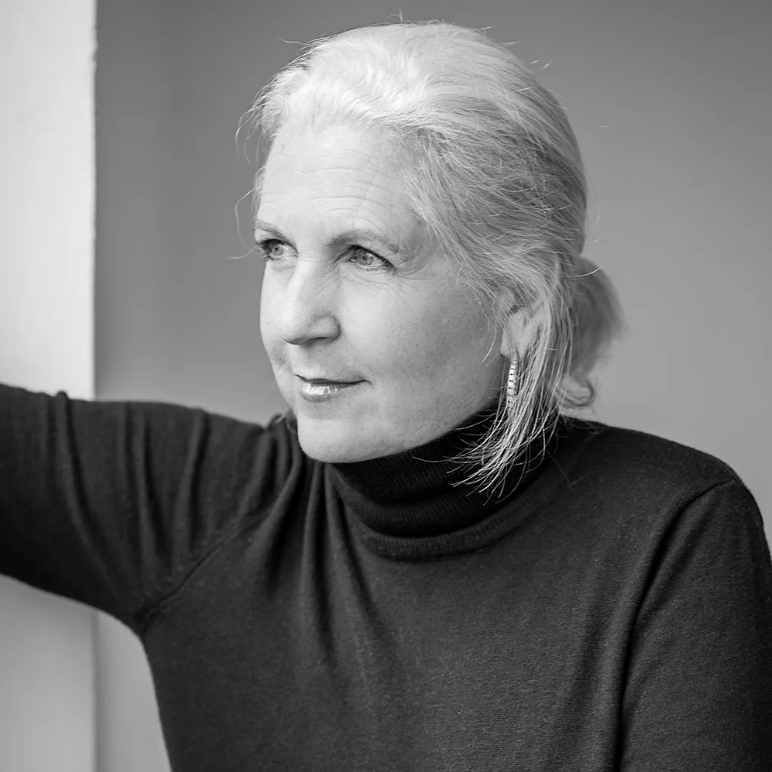The College Arts + Humanities Institute is delighted to announce that Terry Tempest Williams will visit IU Bloomington and appear at the Buskirk-Chumley Theater on November 6 as a Ruth N. Halls Distinguished Speaker.
This event is free and open to the public. Tickets are available now at the BCT Box Office
Get tickets to the Thursday BCT event
On November 7, Williams will take part in an informal conversation about place, space, and memory, with a buffet lunch following. She will be joined by IU faculty Sarah Osterhoudt, Director of IU’s Environment, Society, and Sustainability Institute and Associate Professor in the Department of Anthropology, and Shannon Gayk, a member of IU’s Environmental Futures Team and Professor in the Department of English.
RSVP for the Friday lunch conversation
CAHI’s director, Brenda Weber, teaches a class this fall centered around Williams’ work titled “Sacred Spaces: Memoir, Environmentalism, and the Writings of Terry Tempest Williams” (GNDR-G 402/GNDR-G 701).
Terry Tempest Williams has been called "a citizen writer," a writer who speaks and speaks out eloquently on behalf of an ethical stance toward life. A naturalist and fierce advocate for freedom of speech, she has consistently shown us how environmental issues are social issues that ultimately become matters of justice. "So here is my question," she asks, "what might a different kind of power look like, feel like, and can power be redistributed equitably even beyond our own species?"
Williams, like her writing, cannot be categorized. She has testified before Congress on women’s health issues, been a guest at the White House, has camped in the remote regions of Utah and Alaska wildernesses and worked as "a barefoot artist" in Rwanda.
Known for her impassioned and lyrical prose, Terry Tempest Williams is the author of the environmental literature classics Refuge: An Unnatural History of Family and Place; An Unspoken Hunger: Stories from the Field; Desert Quartet; Leap; Red: Passion and Patience in the Desert; The Open Space of Democracy; Finding Beauty in a Broken World; When Women Were Birds; Erosion: Essays of Undoing; The Hour of Land: A Personal Topography of America’s National Parks; and The Story of My Heart by Richard Jeffries, as rediscovered by Brooke Williams and Terry Tempest Williams. She has collaborated with photographer Fazal Sheikh on The Moon Is Behind Us and Thirst, Great Salt Lake (Fazal Sheikh Archive, November 5, 2024); and with artist Mary Frank on Trilogy, comprised of the individual volumes: A Burning Testament, What My Body Knows, and We Are Not Alone. She wrote the introductory essay for A Wild Promise by Allen Crawford and also wrote text to accompany woodblock prints by Gaylord Schanilec for the fine press book Oracle Bones.
In 2006, Williams received the Robert Marshall Award from The Wilderness Society, their highest honor given to an American citizen. She also received the Distinguished Achievement Award from the Western American Literature Association and the Wallace Stegner Award given by The Center for the American West. She is the recipient of a Lannan Literary Fellowship and a John Simon Guggenheim Fellowship in creative nonfiction. In 2014, on the 50th Anniversary of the Wilderness Act, Ms. Williams received the Sierra Club’s John Muir Award honoring a distinguished record of leadership in American conservation. Williams has also been awarded the Audubon New York Award for Environmental Writing, The Robert Kirsch Award for lifetime achievement, and the Thoreau Prize for Literary Excellence in Nature Writing. She is an Emerson Collective Fellow for 2025-26, and a member of the American Academy of Arts and Letters. In 2025 she received an honorary degree from the University of Southern California.
Terry Tempest Williams has served as the Annie Clark Tanner Fellow in the University of Utah’s Environmental Humanities Graduate Program which she co-founded in 2004; and was the Provostial Scholar at Dartmouth College, serving as a Montgomery Fellow twice. Williams is currently writer-in-residence at the Harvard Divinity School. She is co-founder of the Constellation Project which seeks to create a community of practice to promote the importance of imagination, creativity, and spirituality in Planetary Health. She was also featured in Ken Burns' PBS series on the national parks. Her writing has appeared in The New Yorker, The New York Times, Orion Magazine, The Progressive, and numerous anthologies worldwide as a crucial voice for ecological consciousness and social change. She divides her time between Castle Valley, Utah, and Cambridge, Massachusetts.
This event is presented by the College Arts + Humanities, with generous support from the College of Arts + Sciences and the Ruth N. Halls Humanities Fund.

 The College of Arts
The College of Arts